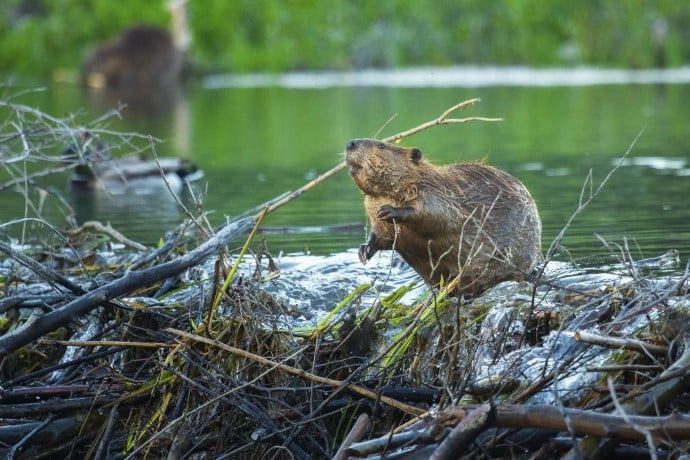International Beaver Day: celebrating our sustainability supporters

Every year, on April 7, we celebrate International Beaver Day. Our mascot, the beaver is part of our corporate identity and inextricably linked to many of our values. Did you know that beavers are ecosystem engineers and champions of biodiversity?
A recent study has shown that, thanks to their engineering skills, beavers create favourable conditions for biodiversity and protect human settlements from flooding and pollution. The study conducted by researchers at the University of Exeter on the reintroduction of beavers in UK, focused on a small wild population of specimens introduced by Devon Wildlife Trust into a fenced wetland area of about three hectares. This 5+ year research highlighted the importance and strong positive impact of these animals on trees, plants, wildlife such as amphibians, bats and birds, water levels and water quality.
The study reported a large number of advantages and benefits generated by the presence of beavers in an ecosystem concluding that the reintroduction of these mammals could improve the river basins of England, and the entire United Kingdom.

Ecosystem engineer and champion of biodiversity
The first positive aspect linked to the reintroduction of the beaver, is its ability to improve the functioning of aquatic ecosystems by virtue of the changes it brings to the environment. In fact, the beaver has an evident impact on the environment it inhabits, it contributes to stabilize the ecosystem, with positive knock-on effects on many species. The famous dams with which they modify the fluvial ecosystems, are in fact able to slow down the rivers, contrast the erosion and improve the quality of the water.
Moreover, by modifying the structure of rivers with their dams, beavers create a series of new ponds and wetlands that provide ecological niches that benefit an amazing number of animals and plants. The data collected leaves no doubt: in the areas analyzed, researchers found 37 percent more fish than in similar stretches of river. There were ten frog breeding sites in 2011, now there are 681; in 2011 there were eight species of water beetles, they have become twenty-six. Long-missing species such as herons, collared natrixes, kingfishers and barnacles have also returned to the area.
Natural solution to flooding
The researchers also observed how some dams built by a group of beavers upstream from the village of East Budleigh, which was previously at constant risk of flooding, slowed the flow of water, reducing the risk to homes and residents. In fact, the study concluded that the small ponds generated by the beavers' work can retain nearly a million gallons of water, thus solving flooding problems and avoiding community costs.
Dams also play a significant role in filtering pollutants from the river, such as phosphates present in fertilizers, thus helping to improve water quality, filtering also sediments that harbor fecal bacteria and thus reducing the risk of contamination and disease.
Commitment to the environment
In their own small way and with actions even if limited to the environment in which they live, the beavers seem to be real defenders of the environment and ecosystems, supporting the community by limiting the risks related to flooding. International Beaver Day can therefore also become a moment to remember that all of us, in our daily lives, can do our best with small actions to defend an environment that is always under attack and therefore deserves our attention.
At Kiwa, we do our best to support sustainability through what we do (or don’t do), according to local and international CSR requirements. For us, being socially responsible means going beyond the performance of our activities: it means taking a path that is always consistent with ethical, social and environmental principles. Here you can read more about Kiwa's Corporate Social Responsibility.